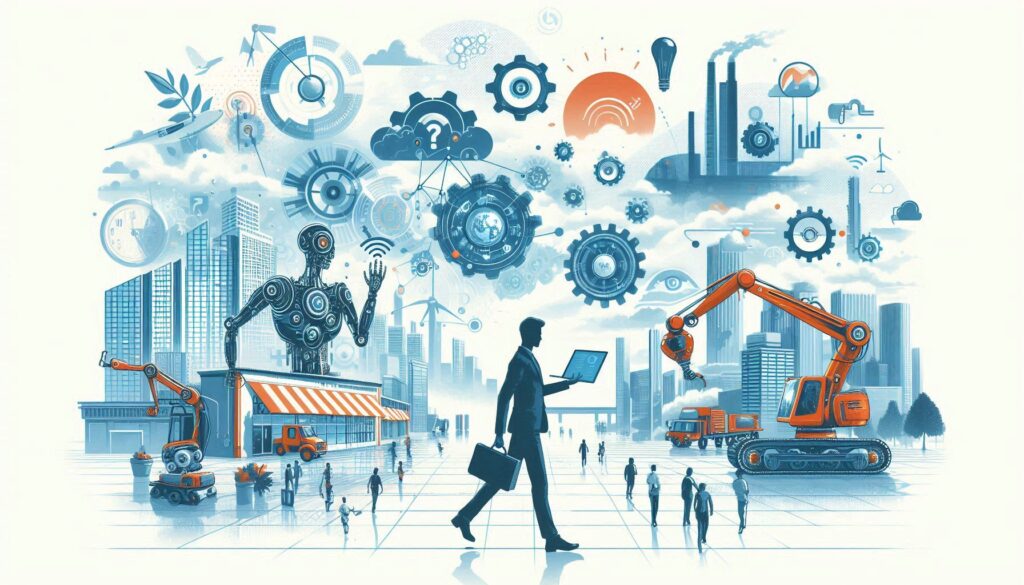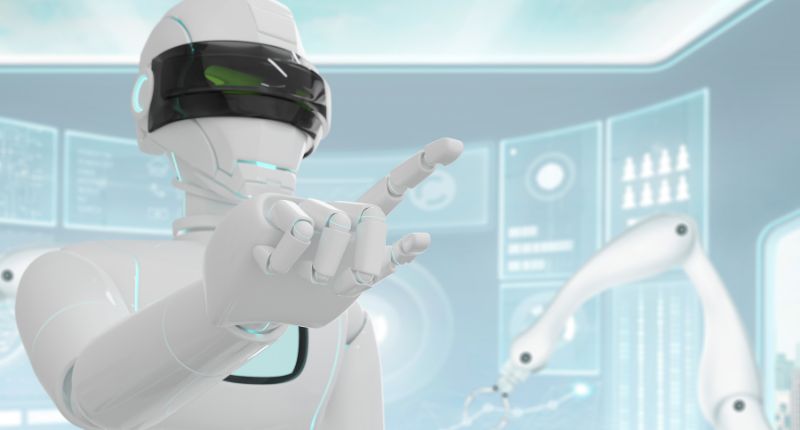Artificial intelligence (AI) is revolutionizing the workplace. From automated customer service bots to self-driving vehicles, technology is reshaping industries at an unprecedented pace. But what does this mean for workers? Will AI replace jobs entirely, or will it create new opportunities? In this article, we explore AI and the future of work: what jobs will be automated? and how individuals can adapt to the changing job market.
The Role of AI in Job Automation
How AI is Changing the Workplace
AI-driven automation is improving efficiency, reducing errors, and lowering operational costs. Businesses are leveraging AI for:
- Data Processing: AI can analyze massive datasets faster than humans.
- Customer Service: Chatbots and virtual assistants handle inquiries 24/7.
- Manufacturing: Robotics streamline production processes.
- Healthcare: AI assists in diagnostics and personalized treatment plans.
While AI enhances productivity, it also raises concerns about job security. Let’s examine which jobs are most susceptible to automation.
Jobs Most Likely to Be Automated
1. Administrative and Clerical Jobs
Routine and repetitive administrative tasks are prime candidates for AI automation. These include:
- Data Entry Clerks – AI algorithms can process and organize data faster.
- Receptionists – Chatbots and AI-powered phone systems handle customer interactions.
- Accountants – AI-based software automates bookkeeping and tax preparation.
2. Transportation and Logistics
With advancements in autonomous technology, jobs in transportation are at risk:
- Truck Drivers – Self-driving trucks are already in development.
- Taxi and Rideshare Drivers – Autonomous vehicles could disrupt the industry.
- Warehouse Workers – Robotics streamline inventory management.
3. Manufacturing and Assembly Line Jobs
Factories are integrating AI-driven robotics for:
- Assembly Line Work – Robots can build products with precision.
- Packaging and Sorting – AI enhances speed and accuracy.
- Quality Control – Machine learning identifies defects in real time.
4. Retail and Sales
With AI-powered e-commerce and self-checkout technology, traditional retail jobs are declining:
- Cashiers – Automated checkout systems reduce the need for human clerks.
- Retail Salespersons – Online shopping and AI-driven recommendations replace in-store assistants.
- Telemarketers – AI chatbots and virtual sales agents handle outbound calls.
5. Customer Support and Service Jobs
AI chatbots and voice assistants are transforming customer service:
- Call Center Agents – AI can resolve common customer inquiries.
- Technical Support Representatives – AI-powered troubleshooting reduces human intervention.
- Help Desk Personnel – Automated ticketing systems handle simple issues.
Jobs Less Likely to Be Automated
1. Creative Professions
AI can generate content, but human creativity remains essential in fields such as:
- Writers and Journalists – While AI assists with content creation, storytelling requires human insight.
- Graphic Designers – AI tools enhance creativity but lack originality.
- Musicians and Artists – Emotional depth and artistic expression are irreplaceable.
2. Healthcare and Medical Fields
While AI aids in diagnostics, human expertise is crucial for:
- Doctors and Surgeons – AI provides recommendations, but medical decisions require human judgment.
- Nurses and Caregivers – Empathy and personalized care cannot be automated.
- Physical Therapists – Hands-on treatment requires human interaction.
3. Education and Teaching
Despite online learning advancements, teachers play a key role in:
- Personalized Learning – AI enhances learning, but human educators provide mentorship.
- Emotional Support – Teachers foster critical thinking and emotional growth.
- Special Education – Adaptive learning needs human intervention.
4. Skilled Trades and Hands-On Jobs
AI struggles with complex, hands-on work such as:
- Electricians and Plumbers – On-site problem-solving is difficult to automate.
- Construction Workers – AI aids design but lacks physical adaptability.
- Mechanics and Technicians – Repairs require human judgment.
How to Future-Proof Your Career in the Age of AI
1. Learn New Skills and Adapt
Upskilling is essential to stay relevant. Focus on:
- AI and Data Literacy – Understanding AI helps integrate it into workflows.
- Digital Marketing – AI enhances marketing, but human creativity is vital.
- Cybersecurity – As AI grows, cybersecurity threats increase.
2. Develop Soft Skills
Human traits remain irreplaceable. Enhance skills such as:
- Emotional Intelligence – AI lacks empathy and social awareness.
- Critical Thinking – Analyzing complex problems requires human insight.
- Leadership and Communication – AI cannot replace human collaboration.
3. Explore AI-Augmented Careers
Some careers will integrate AI rather than be replaced. Consider:
- AI Ethics and Policy Experts – Ensure ethical AI development.
- Human-AI Collaboration Specialists – Bridge the gap between AI and human workers.
- AI Trainers and Analysts – Guide AI development and decision-making.
Conclusion: Embracing AI Without Fear
AI will undoubtedly reshape the workforce, but it doesn’t have to be a threat. By understanding AI and the future of work: what jobs will be automated?, workers can adapt, learn new skills, and thrive in the evolving job market. Rather than fearing AI, we should embrace its potential to create new opportunities and enhance productivity.
External Link: World Economic Forum – Future of Jobs Report


